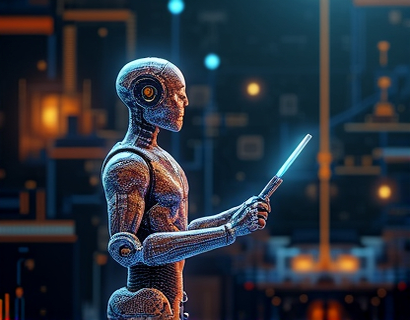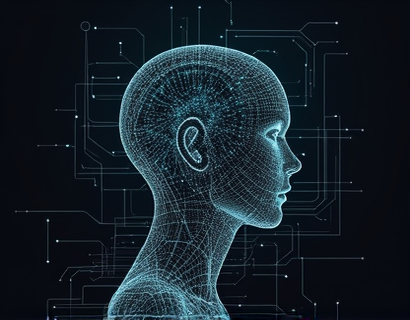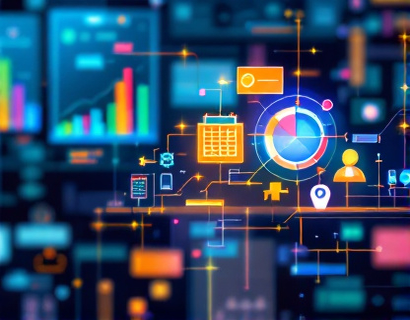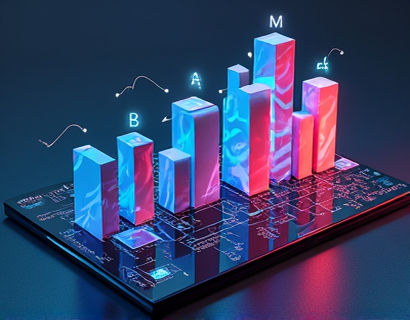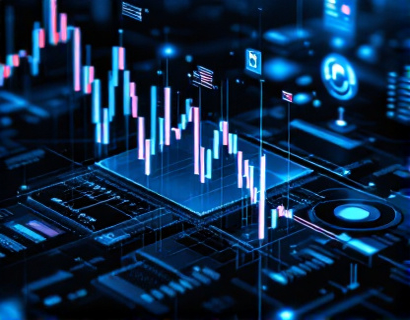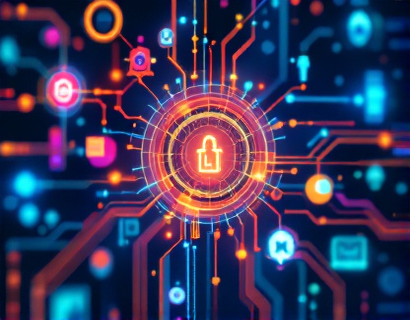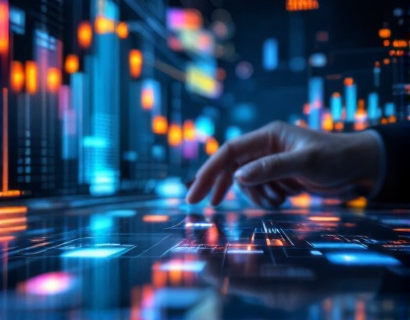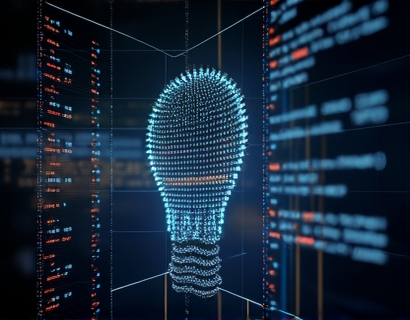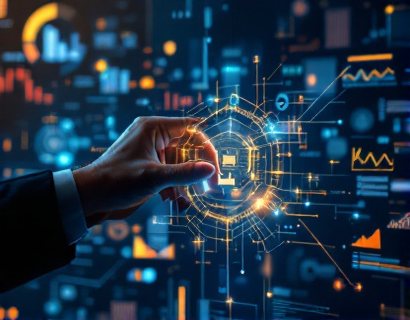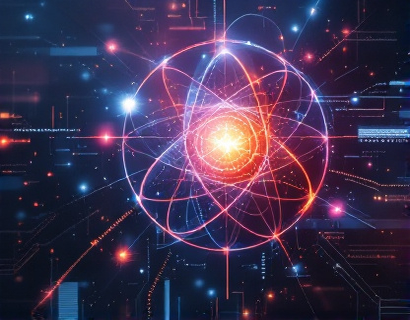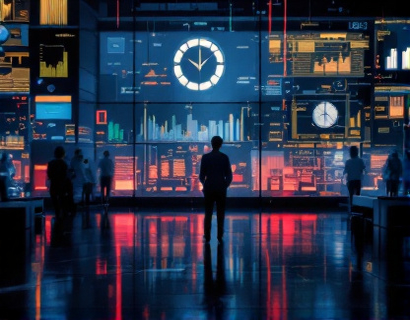AI and Crypto Synergy: Transforming Digital Experiences with Advanced Blockchain Solutions
The integration of Artificial Intelligence (AI) and cryptocurrency, particularly through blockchain technology, is ushering in a new era of digital transformation. This synergy is not just about combining two powerful technologies but about creating a ecosystem where efficiency, security, and innovation converge to redefine digital experiences. As we delve into this topic, it's essential to understand the foundational roles of both AI and blockchain, and how their convergence is driving significant advancements across various industries.
Understanding AI and Blockchain
Artificial Intelligence, often referred to as the future of technology, encompasses a range of techniques and algorithms designed to simulate human intelligence processes. These include learning, reasoning, and self-correction. AI's capabilities are vast, from natural language processing and computer vision to predictive analytics and autonomous systems. On the other hand, blockchain technology is a decentralized ledger system that ensures transparency, security, and immutability in transactions. It is the backbone of cryptocurrencies but extends far beyond, finding applications in supply chain management, healthcare, and more.
The intersection of AI and blockchain is particularly potent because each technology complements the other's weaknesses. AI's need for vast amounts of data and computational power is addressed by blockchain's secure and distributed data storage. Conversely, blockchain's complex smart contracts and decentralized applications (dApps) benefit from AI's ability to automate and optimize processes.
Enhancing Efficiency through AI and Blockchain
One of the most immediate benefits of merging AI and blockchain is the enhancement of operational efficiency. AI algorithms can process and analyze data from blockchain networks at unprecedented speeds, identifying patterns and insights that would be impossible for humans to discern. For instance, in supply chain management, AI can monitor and predict supply chain disruptions by analyzing data from blockchain-based tracking systems. This proactive approach minimizes delays and reduces costs.
Smart contracts, self-executing contracts with the terms directly written into code, are another area where AI and blockchain synergize. AI can automate the execution of smart contracts based on predefined conditions, ensuring that transactions are processed accurately and promptly. This automation reduces the need for intermediaries, lowering transaction costs and increasing speed. In the financial sector, for example, AI-driven smart contracts can facilitate faster and more secure cross-border payments.
Boosting Security with AI and Blockchain
Security is a paramount concern in the digital age, and the combination of AI and blockchain offers robust solutions. Blockchain's inherent security features, such as cryptographic hashing and consensus mechanisms, are enhanced by AI's ability to detect and respond to threats in real-time. AI can monitor blockchain networks for anomalous activities, identifying potential security breaches before they occur. This proactive security measure is crucial in protecting sensitive data and maintaining trust in decentralized systems.
Moreover, AI can improve the security of blockchain-based applications by optimizing cryptographic algorithms and enhancing key management systems. Machine learning models can predict and mitigate vulnerabilities, ensuring that the blockchain remains resilient against evolving cyber threats. In the realm of identity verification, AI-powered blockchain solutions can provide secure and privacy-preserving methods for user authentication, reducing the risk of identity theft and fraud.
Fostering Innovation through AI and Blockchain
The synergy between AI and blockchain is a catalyst for innovation, opening up new possibilities across various industries. In healthcare, for example, AI and blockchain can work together to create secure and efficient patient data management systems. AI can analyze medical records stored on a blockchain to identify trends and predict patient outcomes, leading to more personalized and effective treatments. This integration not only enhances patient care but also ensures data privacy and compliance with regulatory standards.
In the realm of finance, AI and blockchain are revolutionizing the way financial services are delivered. Decentralized finance (DeFi) platforms leverage AI to create more sophisticated and accessible financial products. AI-driven algorithms can optimize trading strategies, manage risks, and provide personalized financial advice, all within a secure and transparent blockchain environment. This combination is democratizing finance, making it more inclusive and efficient.
Case Studies and Real-World Applications
Several companies and projects are already leveraging the power of AI and blockchain to transform digital experiences. One notable example is a logistics company that uses AI to optimize routes and blockchain to ensure transparent and tamper-proof tracking of goods. The AI system analyzes real-time data from blockchain-based sensors to adjust routes dynamically, reducing fuel consumption and delivery times. This not only improves efficiency but also reduces environmental impact.
Another example is a healthcare startup that has developed a blockchain-based platform for secure sharing of medical records, enhanced by AI for data analysis. Patients have control over their data, and healthcare providers can access relevant information quickly and securely. AI algorithms analyze this data to provide insights for better diagnosis and treatment plans, all while maintaining patient privacy and data integrity.
Challenges and Future Prospects
Despite the numerous benefits, the integration of AI and blockchain is not without challenges. One of the primary hurdles is the technical complexity involved in developing and maintaining these systems. Both technologies are rapidly evolving, and keeping up with the latest advancements requires significant expertise and resources. Additionally, regulatory uncertainties and the need for standardization can slow down adoption.
However, the future looks promising. As more organizations recognize the potential of AI and blockchain, we can expect increased investment and innovation. The development of more user-friendly tools and platforms, like the one described earlier, will make it easier for businesses and individuals to harness these technologies. The convergence of AI and blockchain is set to become a cornerstone of the next generation of digital solutions, driving growth, security, and innovation.
In conclusion, the synergy between AI and blockchain is transforming digital experiences by enhancing efficiency, security, and innovation. As these technologies continue to evolve and integrate, the possibilities for creating smarter, more secure, and more inclusive digital ecosystems are endless. Embracing this synergy is not just an option but a necessity for staying competitive in the rapidly evolving digital landscape.







